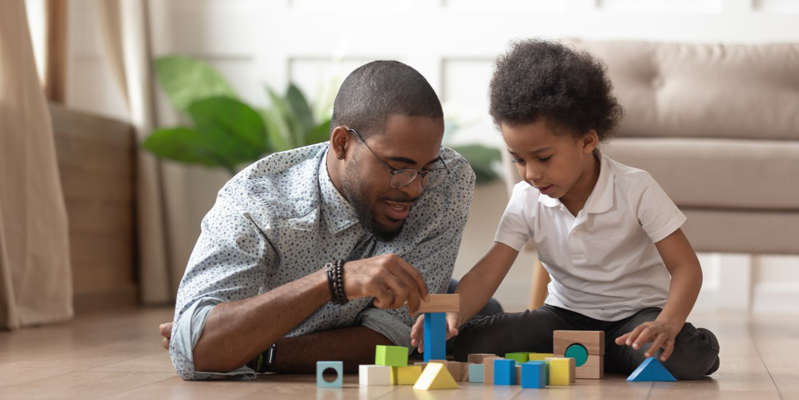Your child was recently diagnosed with a disability. You may feel confused. Or relieved. Or scared. Or overwhelmed. All of the above? That sounds about right. This is a big moment. But our children with disabilities are… our children. Let’s talk about how to get through the experience of getting a new diagnosis so you can keep being the best parent you can be to your child.

Give yourself room to breathe.
You’ve just gotten some important news. Maybe it’s a shock, or maybe you’ve known for a long time that this diagnosis was coming. Maybe you even have the same diagnosis. It can still feel like a big deal. Each time one of my children has gotten a new diagnosis, it has thrown me for a loop. You need a minute.
Try not to jump right into action. It will probably feel like you need to do everything right now to support your child. But in most cases, the diagnosis is not really an emergency. You have time to take a breath, and you probably really need one.
Shift your perspective.
When you get a new diagnosis it can feel like everything is collapsing on top of you, but the reality rarely looks or feels that way, and here’s why:
Having a disability is not a tragedy. A disability is not the sum of who a person is.
Go read that again. Louder this time for the cheap seats in the back.
When you learn your child has a new disability diagnosis, it might feel like everything has changed. And that can feel hard and scary and sad.
But there is so much more to this story.
You have your beautiful child. They are still the same person you have loved since you met them. It’s just that now you know them better and you can start to understand how to meet their needs in new ways as you make dinner and argue over toothbrushing and tuck in your toddler for the 15th time tonight or blow kisses at the back of your teenager’s head as they ride away on their bike.
And don’t forget: the only constant is change, and this is especially true with children. The disability may not change, but your child’s behaviors and needs and feelings — and your feelings — all will. This may feel overwhelming right now, but it won’t feel that way forever. I promise.

Find your people.
Who are the people who have supported you as a parent? Who are the people who just adore your child? It may feel hard to talk to anyone about this, but support is really important right now.
Start with your inner circle and tell them what you need from them. Someone to listen. Distraction. A cup of coffee left on your doorstep one morning. Whatever it is you need, let your people know that you need them to be there for you and your child right now.
If you are a person who struggles to ask for help (so many of us do), find someone who can ask for help for you — maybe a close friend or partner or a sibling.
Surround yourself and your child with the people who can show up for your family in a way that feels like love.
Find some role models.
Find some adults who share your child’s disability or important elements of it. We all need mirrors.
The adult role models I have met have helped me understand so much about how to meet my children’s needs, and just as importantly, how to see all of their strengths. They have literally changed my whole way of parenting.
Role models can be people you get to know in real life, movie characters, books (here’s a new one for parents of children on the autism spectrum), or people who you follow on social media. Here are some suggestions for finding these role models.
Learn about your resources and line them up.
This is where you may start to feel like you are in way over your head. Remember what I said before about how to eat an elephant? Make a list. Figure out where you want to start and do one thing at a time. You’ve got this.
There are three main systems that can support you and your child:
Medical or health care – this includes evaluations, treatment, and referrals. Government benefits like SSI, Early Intervention, and Medicaid (your child may qualify even if your family makes too much money to be eligible) School system
Choose one and start there. You’ll get through them all eventually, but not if you’re burned out by trying to do everything at the same time. And besides, your toddler needs to be tucked in again, or your teenager is downstairs in the kitchen having his eighth meal of the day.
At different times in my own kids’ lives, I’ve tried to cope with my stress and worry by diving into all three and Getting All The Things Done at once. It’s exhausting and frustrating and I end up missing the child right in front of me.
So make sure you’ve left room for the parenting part too.
Become a fierce advocate for your child
So much of managing a disability is managing all of the obstacles that are in the way because of people’s attitudes or lack of knowledge.
Your job as a parent is to get rid of obstacles when you can and help your child navigate the rest. You will run into complicated systems, mountains of paperwork, and school systems juggling competing priorities. Learn your child’s rights, learn your rights, and find some other parents who do this well. Keep great records. Speak up. When you’re advocating for your child, you are helping them get what they need AND you’re modeling for them how to advocate for themselves.
…And now what?
Now go back to the business of loving your child. This may look different than what you imagined, but isn’t that the definition of parenting? Lucky for you, you have a great kid. You’ve got this.





